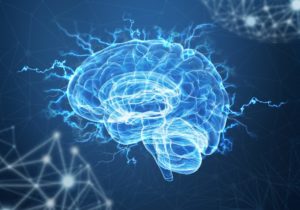While drugs can be detrimental to our health and have been a problem as long as we can remember, drug use has been occurring for as long as history can recall. Whether it was the notorious prohibition in the 1920s or opium dens in the late 1800s as a result of the California Gold Rush, drug use has a long and dark history.
Not only can drugs alter how we think, but they can change how we feel and behave by disrupting neurotransmission, which is the process of communication between neurons (nerve cells) in our brain. There have been many studies conducted during the past several decades that highlight how drug dependence and addiction are the results of an organic brain disorder caused by drugs’ cumulative effects on neurotransmission.
The brain is our most complex organ, and it is the front and center to operate all human activity. We need our minds even for the most simple of tasks. It is designed to learn and help us drive a vehicle, enjoy a meal, or play a musical instrument. It is one of the fascinating pieces of life to exist in this world.

The brain regulates essential functions such as breathing, how we experience life, and it also shapes our behavior. Our brain is everything of who we are. Its complexity, however, can be altered when we consume substances, such as drugs or alcohol, and is a driving reason behind why people can change drastically when under the influence.
Drugs interfere with neurons and will alter the way messages are sent, received, and processed. Drugs such as marijuana or heroin will activate neurons as a result of their chemical structure imitating the brain’s own chemicals, but they do not enable the neurons in a way that a natural neurotransmitter will.
Due to this, it will lead to abnormal messages that are sent through the network. Other stimulant drugs such as cocaine or amphetamines will cause neurons to release abnormally large amounts of natural neurotransmitters such as dopamine and interfere with transporters. It prevents the regular recycling of the chemicals. It will either amplify or disrupt regular communication between neurons.
The high we receive from drugs that cause pleasure or euphoria is still widely misunderstood by scientists. What is known is that it involves surges of chemical signaling compounds including the body’s natural opioids (endorphins), and other neurotransmitters in parts of the reward circuit. It was initially thought that dopamine produced by drugs directly caused the euphoria, but scientists have learned about this phenomenon and determined that it has more to do with getting us to repeat pleasurable activities than producing the pleasure directly.
What Is Dopamine?
Dopamine is associated with feelings of euphoria, bliss, motivation, and concentration, but it is more than just that. Like serotonin, dopamine is a brain chemical known as a neurotransmitter. It is released by brain cells that control body functions and transmit signals from the brain to the body by passing synapses between each neuron.
Dopamine plays a role in several of our pathways and plays a vital role in a range of body systems as well as functions that include movement, sleep, learning, attention, memory, and mood. Dopamine is an essential chemical in our brain, but playing with the levels by ingesting drugs can cause long-term and undesirable side effects.
What Is Dopamine’s Role in Drug Addiction?

Dopamine is involved in drug reinforcement, but its role in addiction is less clear. The reinforcing effects of drugs are associated with significant and fast increases in extracellular dopamine, which mimic those induced by physiological dopamine cell firing but are more intense and protracted. The increase in knowledge has led to more complex models of drug addiction. Brain imaging techniques have been a contributing factor to these new understandings.Dopamine will control the thoughts and actions of individuals addicted to drugs and alcohol. Cocaine, stimulants, alcohol, and heroin increase the dopamine output in one way or another and alter the way it functions.
Short-term use will produce the same reward and pleasure for almost everyone, but the difference in short-term users is that functions will return to normal quickly.
For drug users, though, the long-term effects cause changes in the brain that are much more permanent. The substances that once initiated these feelings of pleasure and dopamine production are now required to produce pleasure and happiness because the mind can’t do so on its own.
Those who use drugs may mention that they need drugs or alcohol to feel normal, which is an accurate description of their feelings. It is difficult for those who are not struggling with addiction to understand because they have probably never dealt with this.
Drug exposure will sensitize or desensitize the brain depending on the individual’s drug of choice. It is the direct result of developing a tolerance to the substance, and now they require much more of the drug to achieve their desired effects.
Long-term abuse of these substances hijacks our ability to control emotions, motivation, and mood. Continued use will place the standard flow of dopamine, causing its user to lose motivation, feel emotion, and cannot function normally. The user will need to get high to continue functioning at a high level.
How Do Drugs Harm Dopamine Receptors?
Many drugs can influence dopamine by increasing the amount released or decreasing the amount removed. Many addictive substances involve an increase in dopamine levels in the brain, including many of the most common drugs of abuse like opioids, alcohol, nicotine, amphetamines, and cocaine. Chemical dependence and addiction can cause long-term effects like compulsive drug use. However, some drugs can physically damage dopamine receptors, which can lead to some long-term issues.
Drugs that follow the brain with dopamine over and over can inundate your dopamine receptors with the chemical messenger, overwhelming and damaging them over time. Damaged dopamine receptors can contribute to drug tolerance. Because there are fewer working receptors, your brain will be less sensitive to the drug’s effects. It may also be harder to experience pleasure from other activities, like natural dopamine sources. Typically, dopamine receptors are damaged by the long-term use of powerful stimulants that block the removal of dopamine from your system. Cocaine and methamphetamines have the potential to do this.
Damaged dopamine receptors can lead to the inability to feel pleasure from typical activities, which may deepen your dependence on the drug. Damaged receptors can also lead to depression and a condition called anhedonia, which causes you to be unable to feel pleasure. However, these conditions are often temporary, as long as substance use issues are addressed.
How Long Does Dopamine Take to Recover?
If some drugs can cause damage to dopamine receptors, can dopamine receptors heal? How long does it take for dopamine receptors to recover?There is no definitive answer to these questions. Addiction is a complex disease, and its effects on the brain can vary depending on several factors. There are some questions to ask, however, if you want to get a better idea of how long it could take to restore dopamine levels. They include:
- How long has the person been using drugs?
- Which drugs are being used? What kinds of drugs are they?
- What is the user’s standard dose? Is it high? Is it low?
- How old is the user?
- Are they using multiple substances at the same time (polysubstance abuse)?
- Did they have dopamine deficiency before use?
- Do they struggle with depression or another mental health disorder?
If someone is a long-term alcohol or drug abuser, most addiction specialists agree that it could take around 90 days (three months) to have levels return to where they were before using. Unfortunately, drugs such as methamphetamine complicate these answers, and for heavy methamphetamine users, it could take up to an entire year before they resume normal dopamine functions. In more severe cases, recovering methamphetamine users may never return to normal dopamine levels because of how the drug depletes the chemical in the reuptake process.
Unfortunately, this could make someone fall into relapse, knowing they never feel normal again without the drugs. Fortunately, there are treatment centers equipped to deal with these severe cases of drug addiction and can help you overcome these problems caused by addiction and lead a healthy and normal life. If you have reached a point where you are tired of using drugs, it is time to get help before you damage the dopamine beyond its ability to repair alone.
Get Help For Drug or Alcohol Addiction Today
Drug addiction can damage our dopamine system that requires additional help for treatment. If you or someone you know is struggling with a substance use disorder and can’t stop using on your own, it’s imperative to reach out to us today. Speak to an addiction treatment specialist at Serenity at Summit to learn more about addiction and how it can be treated. Call 844-432-0416 or contact us online to learn more about your addiction therapy options. We are a phone call or click away from a better life.
